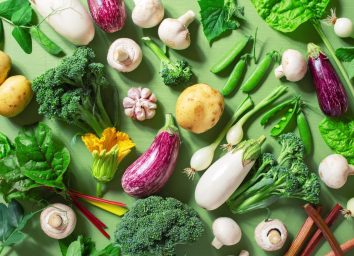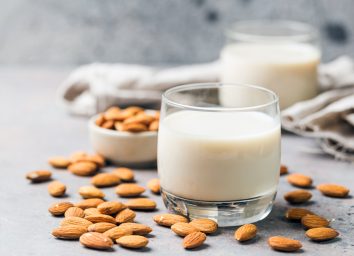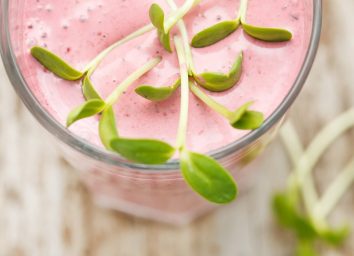10 Nutritional Deficiencies Men Should Watch for in Their 40s
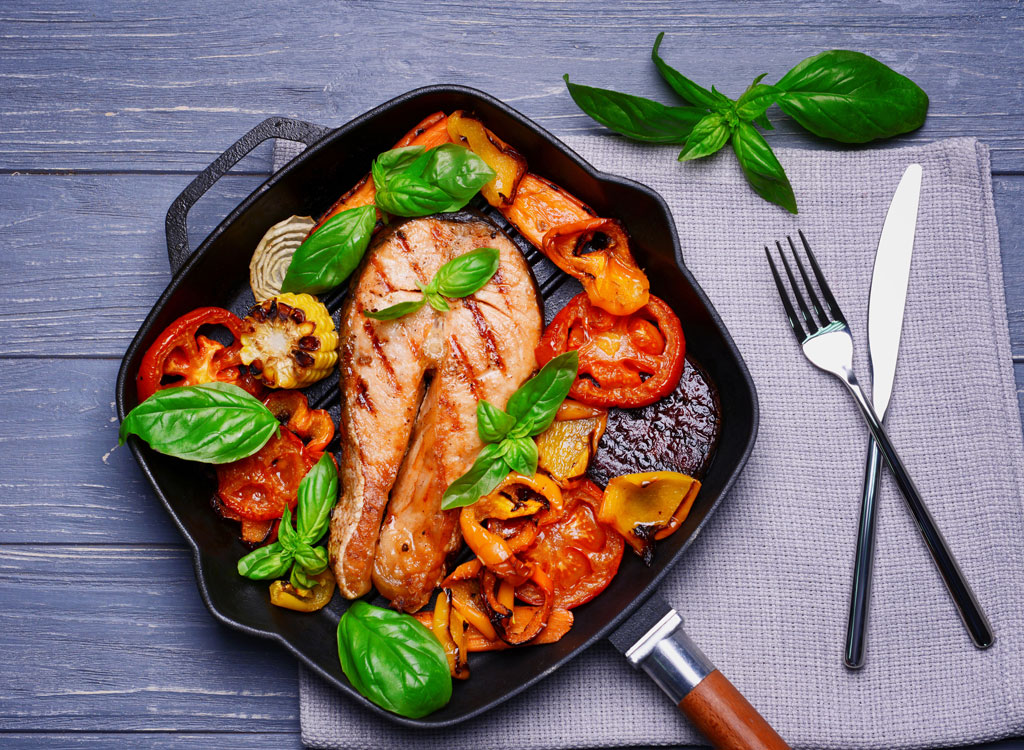
"Healthy aging begins decades before we typically think about it," says Suzanne Dixon, RD, a registered dietitian at The Mesothelioma Center in Portland, Oregon.
It's important to start taking care of your health once you hit the big 4-0 because, as scary as it is, the risk of dying from a cancer diagnosis is highest during your 40s, a study published in the American Journal of Preventive Medicine revealed. But there's plenty you can do to combat those stats. "Heart disease and cancer are the top two killers in this country, and the key to minimizing the risk of these diseases is to start early," says Dixon. "We know with certainty, when someone is diagnosed with cancer or has a heart attack in their 50s, 60s, or 70s, that disease process started in their 30s and 40s."
One way to start? Fill your plate with nature's best medicine: nutrient-dense food. Here are 10 of the most common nutritional deficiencies for men in their 40s, plus the easiest eats that can help you get back on track.
Protein
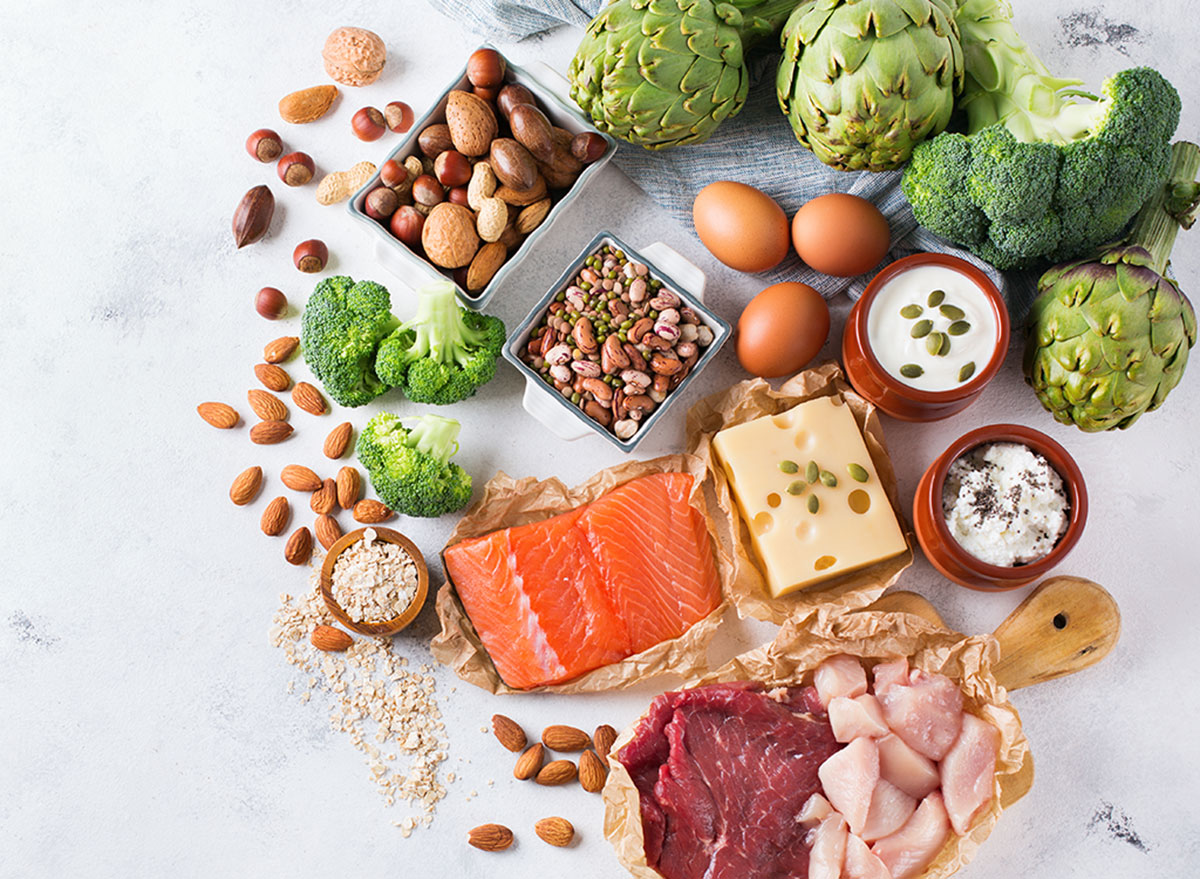
Eat This: Beef, seafood, Greek yogurt, eggs, nuts
Losing pounds isn't always a good thing. After turning 30, the typical male sheds three to five percent of his muscle mass per decade.
"Protein not only helps prevent muscle loss, which can increase as you age, but it can also help to combat a slowing metabolism," says Sam Presicci, RD, lead registered dietitian at Snap Kitchen in Austin, Texas. "As you age, it gets more and more important to eat a balanced plate that includes fiber, with a heavy focus on veggies, and adequate protein, from sources like grass-fed meats and wild-caught seafood. They'll keep you full and focused without a bunch of empty calories."
Aim for one gram per kilogram of body weight each day, which works out to about 82 grams for a 180-pound man. If you can't sneak in a steak, salmon fillet, and some Greek yogurt all in one day, supplement with a protein powder that fits your eating plan (plant-based, dairy-free, etc.). Most powders offer 20 to 30 grams of protein per serving to get you one-third of your way to your daily goal.
Potassium
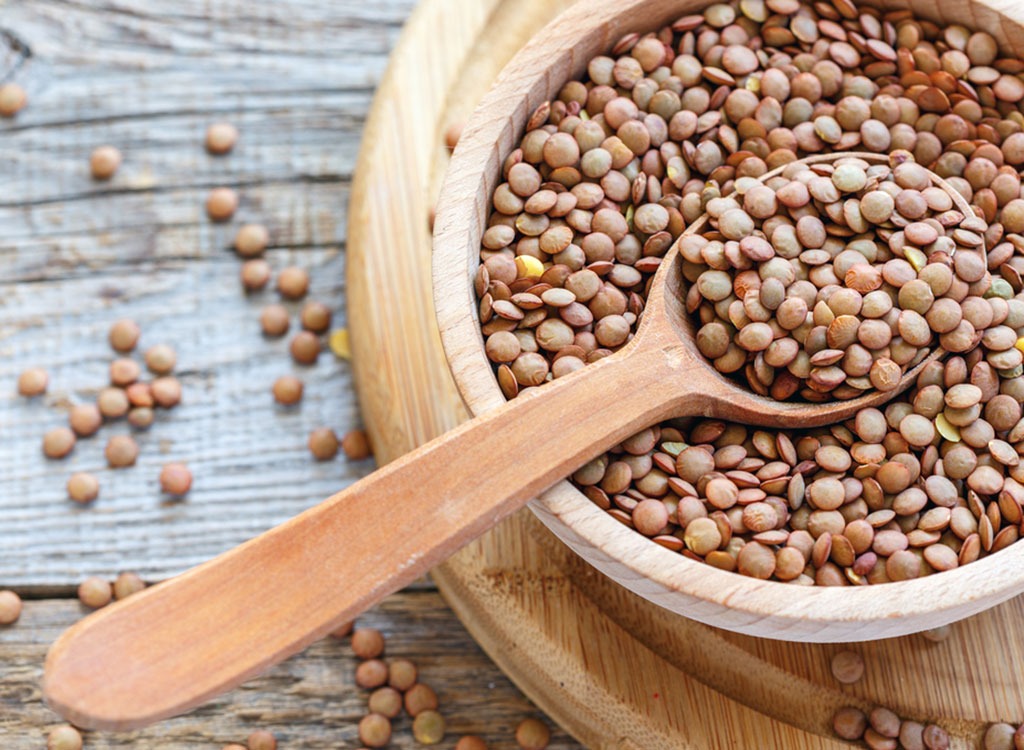
Eat This: Dried apricots, lentils, acorn squash, potato, kidney beans
Now that you've fed those muscles, keep them in peak performance mode with potassium.
"Potassium is a mineral that plays a role in muscle contractions and blood pressure management. Adequate intake can help prevent cramps, plus reduce your risk of developing high blood pressure, osteoporosis, and kidney stones," says Mary Broe, RD, a registered dietitian at Rhode Island Hospital in Providence, Rhode Island.
Adult males under 50 should seek out 4,700 milligrams of potassium per day. If that sounds like a lot, check out these 8 Foods High in Potassium That Boost Total Health.
Magnesium
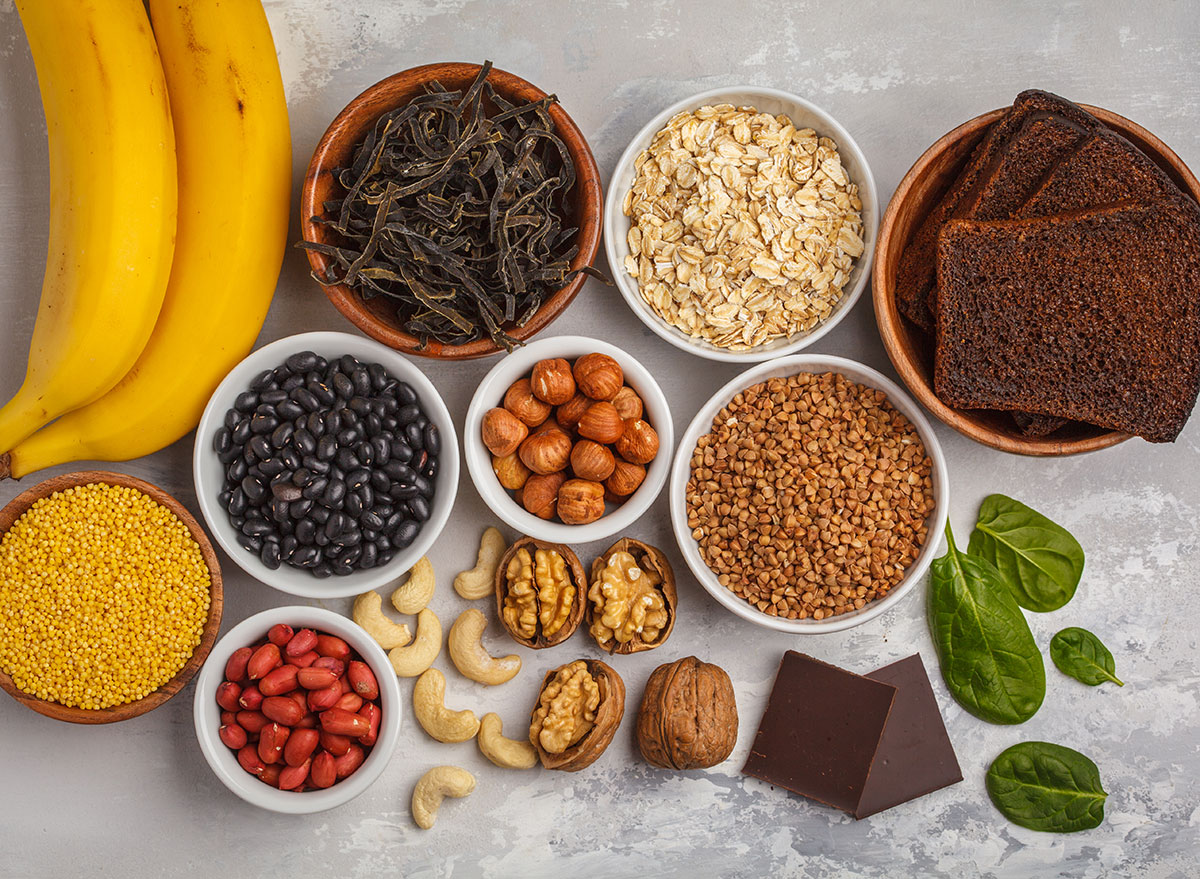
Eat This: Almonds, spinach, cashews, peanuts, black beans, peanut butter
In related heart health news, it's important to mind your magnesium, which has a multitude of effects on your overall well-being.
"As we get older, adults are at an increased risk of high blood pressure, and magnesium helps combat that," says Kayla Fitzgerald, RD, a registered dietitian in Charleston, South Carolina. "It also aids in blood glucose control, protein synthesis, and nerve function."
While most men who eat a balanced diet easily reach their 420 milligram-per-day quota, over-the-counter pills are available to fill in the gaps. Just be sure to watch the size of your supplement.
"The highest dose of supplemental magnesium an adult should consume is 350 milligrams daily. Consuming more than that can cause diarrhea and cramping," Fitzgerald says.
Vitamin B12
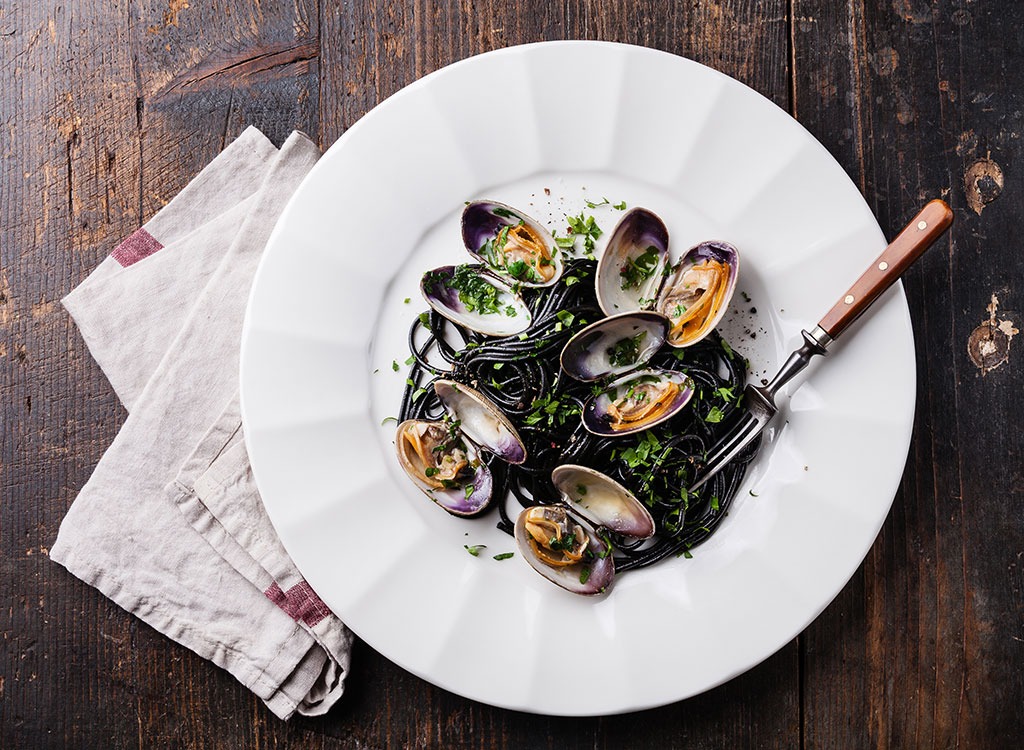
Eat This: Clams, beef liver, nutritional yeast, trout, salmon
Naturally found in many animal products, vitamin B12 assists in keeping blood and nerve cells healthy. A lower-than-desirable level of B12 in the blood may result in fatigue, constipation, weakness, or anemia.
"As we age, vitamin B12 is absorbed more poorly, so it becomes more important to get to your goal of 2.4 micrograms per day," Fitzgerald says.
If you're on a vegetarian or vegan diet or your blood tests have come back low in B12, "it's usually safe to supplement daily," she adds. For foods that are full of B12, check out The 11 Best Food Sources of B Vitamins for More Energy.
Omega-3 Fatty Acids
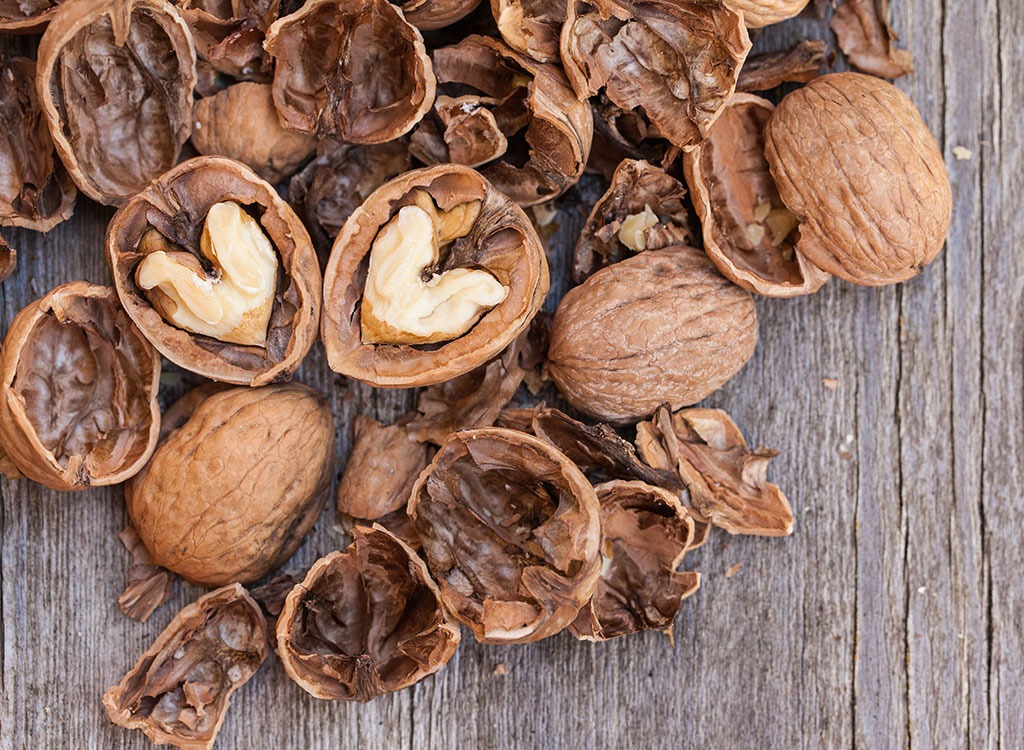
Eat This: Flaxseeds, walnuts, eggs, canola oil, sardines
Turn back the clock by filling your diet with healthy fats. Omega-3s can "reduce the risk of heart disease and even improve the appearance and health of your skin," says Anthony Youn, MD, a board-certified plastic surgeon in Troy, Michigan.
Omega-3s also "help prevent inflammation and contribute to the health of your eyes and brain," says Jonathan Valdez, RD, a registered dietitian at Genki Nutrition in Astoria, New York, and a media spokesperson for New York State Academy of Nutrition and Dietetics.
While it takes just four ounces of salmon to reach your daily Omega-3 dose of 1.6 grams, you can supplement if you're not a fan of the highest-level food sources. Omega-3 supplements have also been linked to less severe rheumatoid arthritis symptoms.
Vitamin C
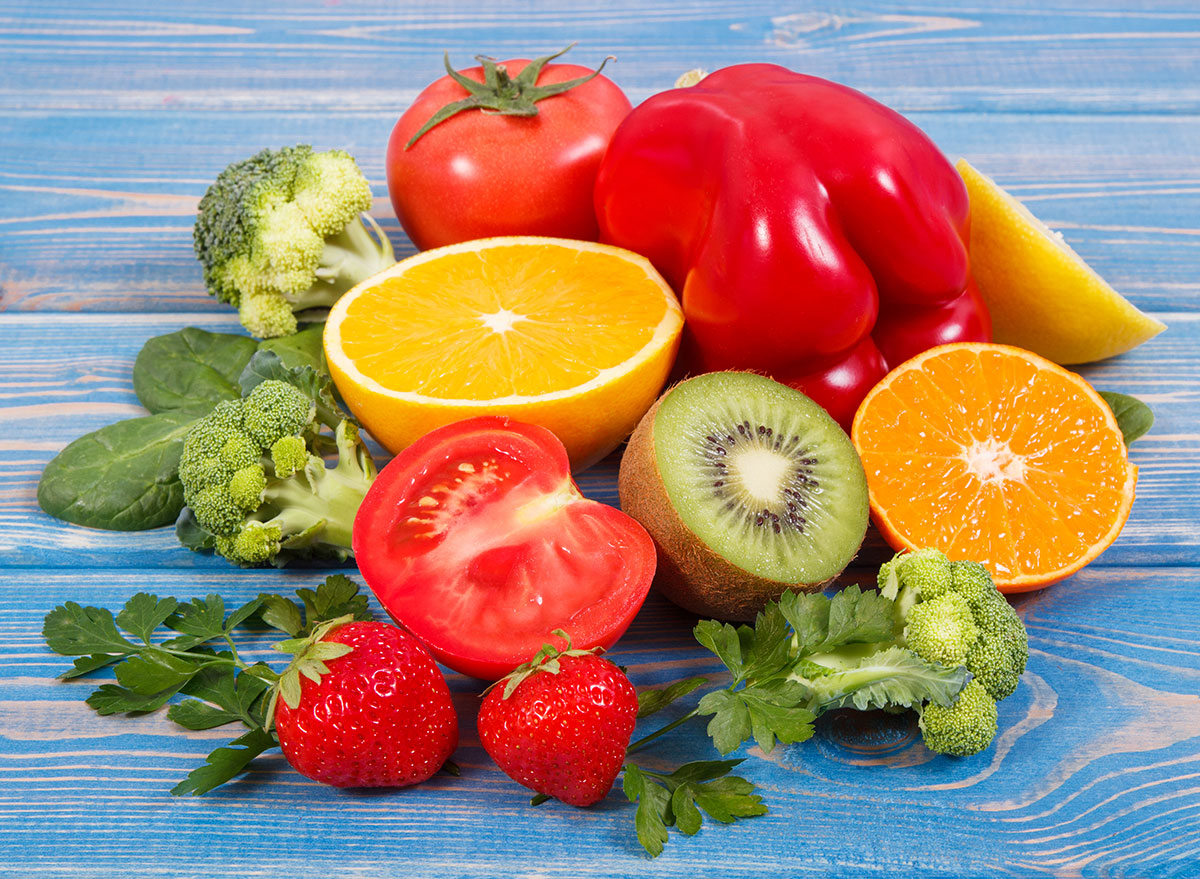
Eat This: Bell peppers, oranges, broccoli, strawberries, Brussels sprouts
As your immune system ages, it's important to stay healthy with vitamin C.
"You can't work out if you're sick! Many fruits and vegetables contain vitamin C, which is essential for optimal immune function, especially during the flu season," Valdez says.
Like Omega-3s, vitamin C can also keep skin looking sharp since "it's in charge of collagen formation," he adds.
Adult men need 90 milligrams daily, which is equivalent to six ounces of orange juice. That doesn't sound too tough, but if your doctor finds you're vitamin C deficient, the National Institutes of Health recommend Ester-C.
Vitamin D
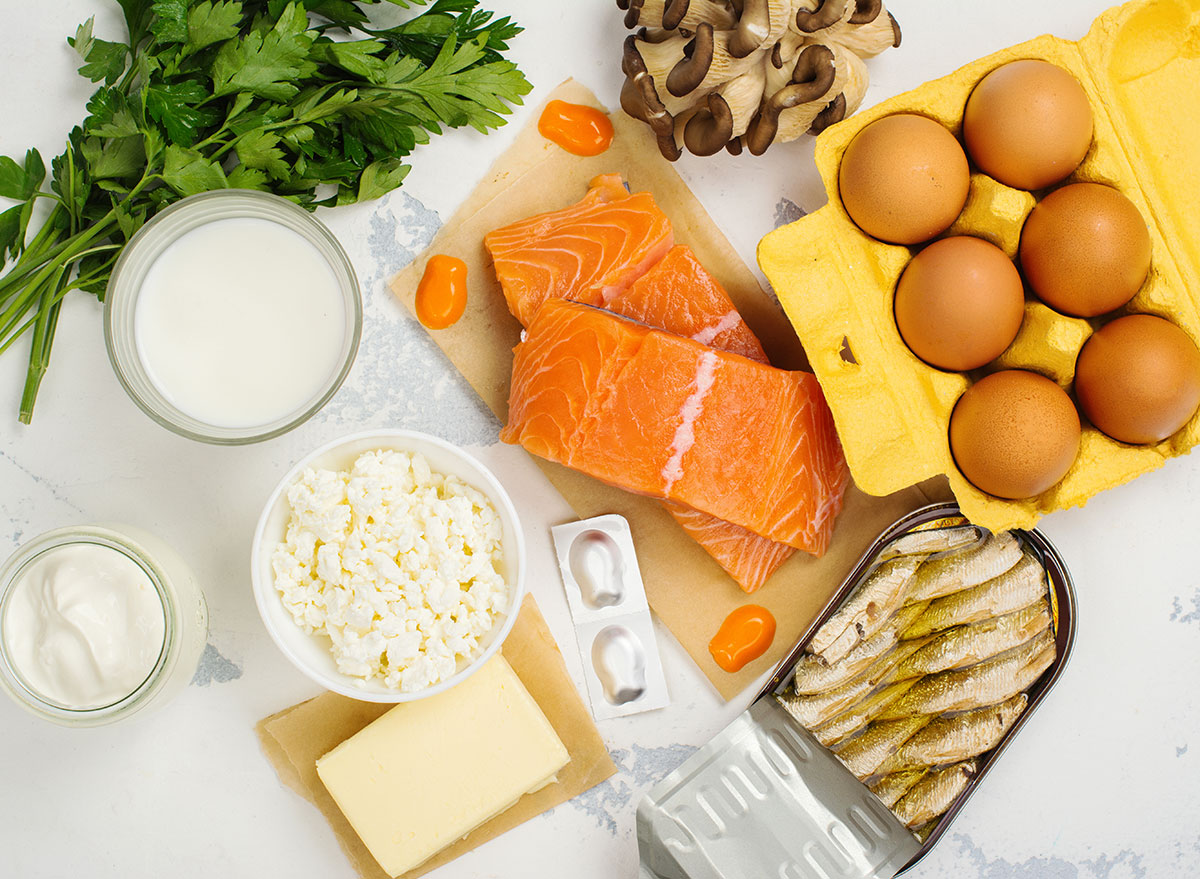
Eat This: Cheese, yogurt, milk, sardines, leafy greens, skin-on salmon
You've probably heard about the importance of the "sunshine vitamin," but did you know vitamin D is also associated with maintaining levels of testosterone in the body?
D also "protects against age-related changes and regulates calcium and phosphorus within the body," Fitzgerald says. If that wasn't enough, this vitamin also "plays a role in the absorption of calcium to keep bones strong."
Vitamin D has been linked to lower risk for pancreas, esophagus, and head/neck cancers and may slow the growth of tumors for other types of cancers, too.
All you need is 600 international units (IUs) of vitamin D per day, which you could get from a three-ounce piece of swordfish.
Folate
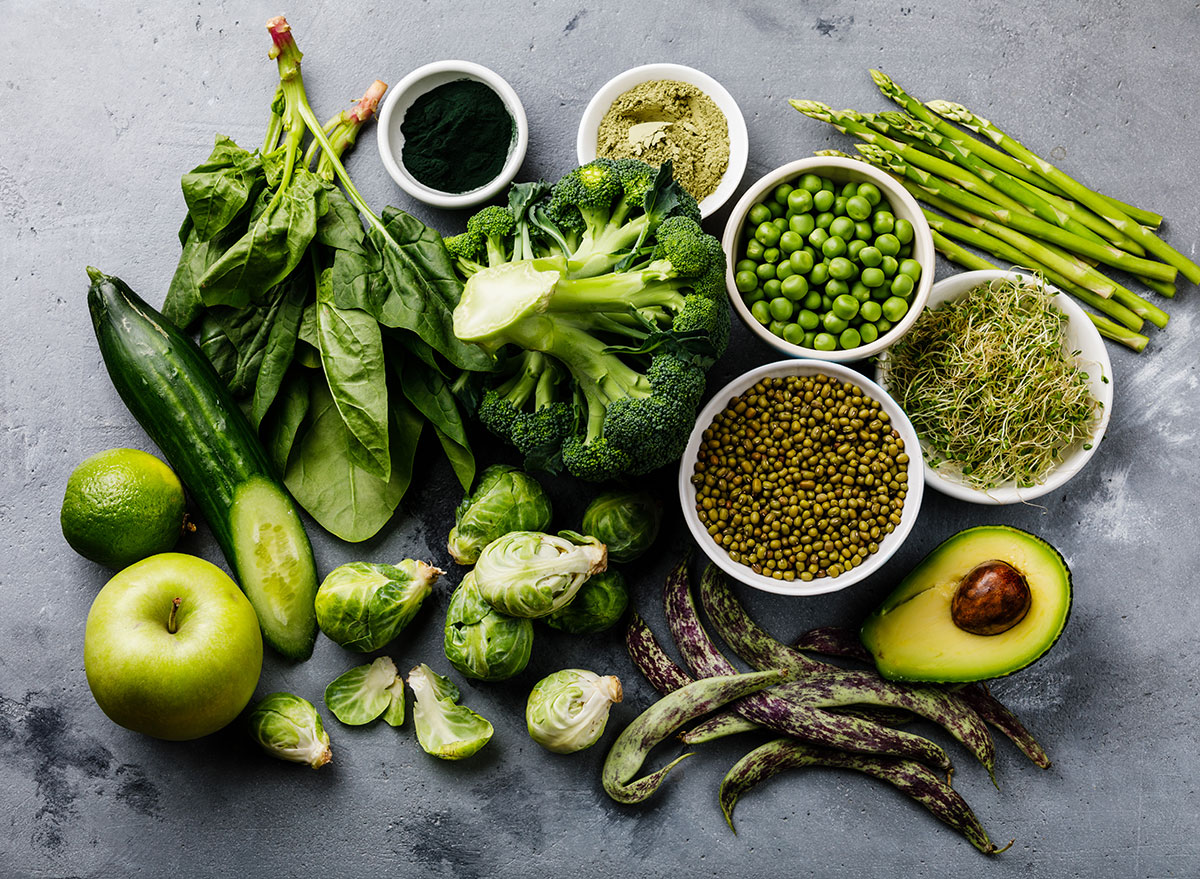
Eat This: Liver, spinach, black-eyed peas, asparagus, Brussels sprouts
You may have heard of folate's function in prenatal health, but it's not just important for child-bearing women, says Suzanne Dixon, RD, a registered dietitian at the Mesothelioma Center in Portland, Oregon.
"Folate from natural food sources—not supplements—helps protect brain function as we age," Dixon says. "Taking a folic acid supplement isn't a great idea, because too much folate may increase the risk of certain cancers, notably colon cancer. This is why food trumps a pill, especially for folate in the 40-plus crowd."
Just eight asparagus spears offer 178 micrograms, which is almost halfway to your 400 per-day goal.
Iron
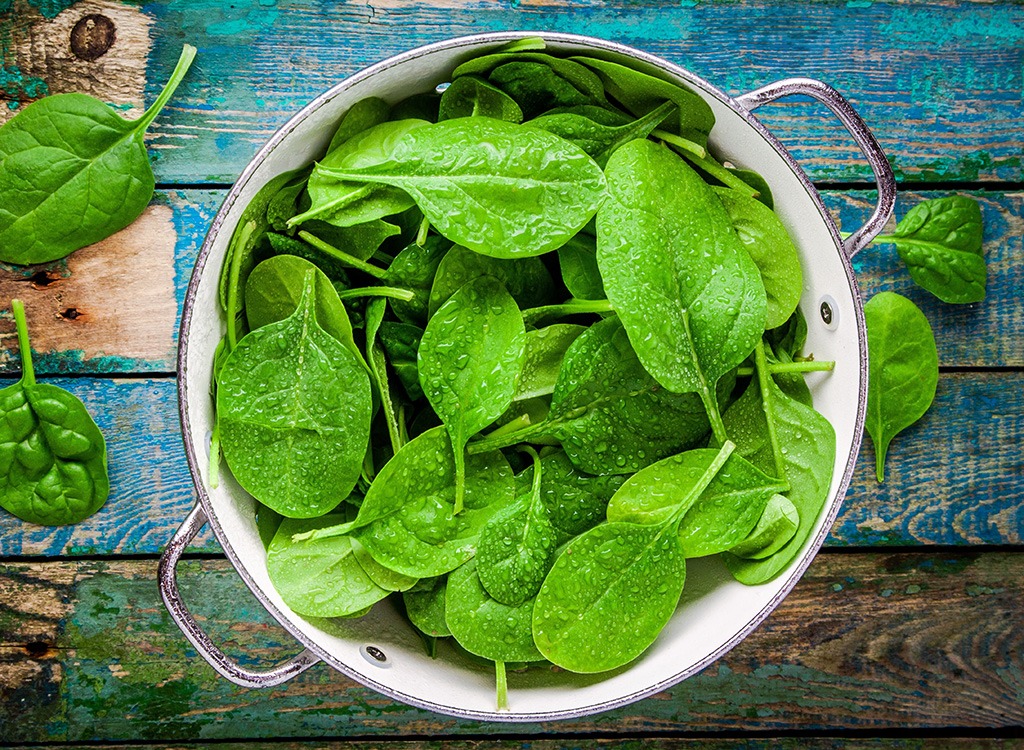
Eat This: Fortified cereals, lentils, beef, oysters, spinach
Iron is the most common nutrient deficiency worldwide, the World Health Organization reports. That's a big problem since iron helps oxygen move throughout your body via hemoglobin in your blood.
"While you're hustling at work and at home, you don't want to feel fatigued along the way," Valdez says.
While women are more prone to being anemic (low in iron), males who are vegetarian, who donate blood frequently, and who suffer from a digestive condition (such as celiac disease) are also fairly frequently anemic. Symptoms of anemia include shortness of breath, lack of energy, brittle hair and nails, or pale skin.
One cup of lentils, which is equivalent to seven milligrams of iron, gets you almost to your daily goal of eight milligrams.
Selenium
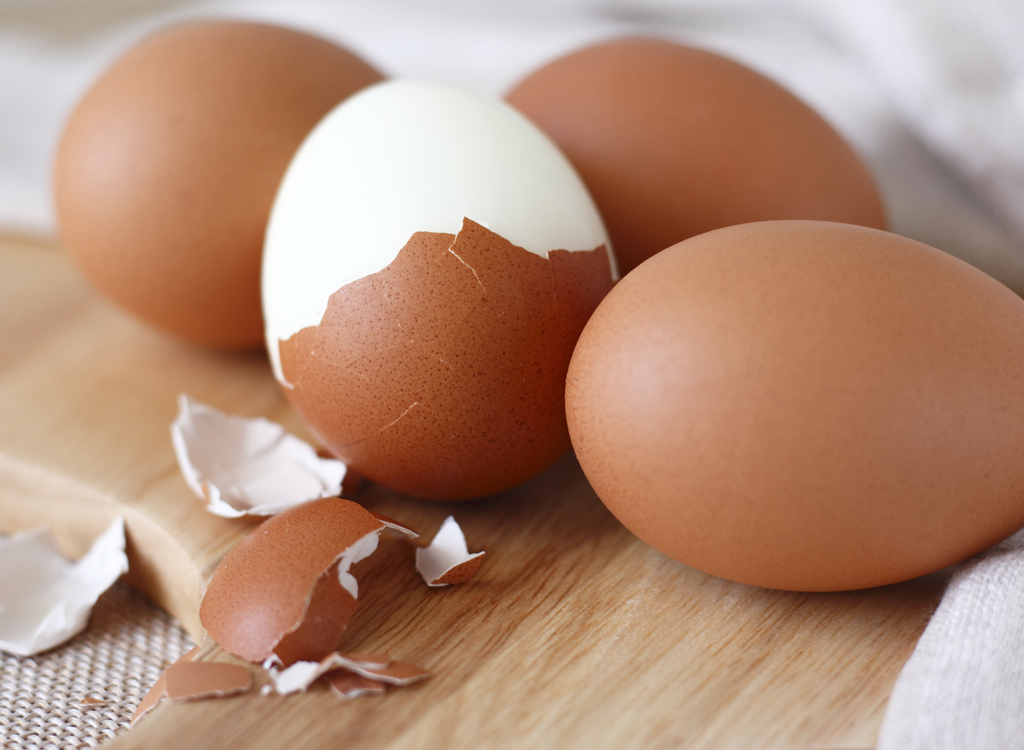
Eat This: Seafood, eggs, dairy, chicken
Selenium has been shown to lower prostate cancer risk since it's an antioxidant that fights cancer-causing free radicals, Presicci says. At the same time, however, overdoing it on supplements is linked to increased risk for the same condition, so it's best to eat and drink your selenium.
You can score your recommended 55 micrograms each day through tuna (92 micrograms in three ounces), ham (42 micrograms in three ounces), and eggs (15 micrograms each).
